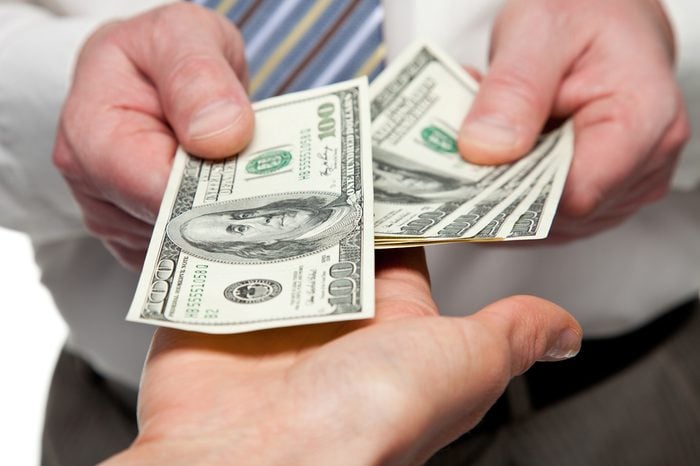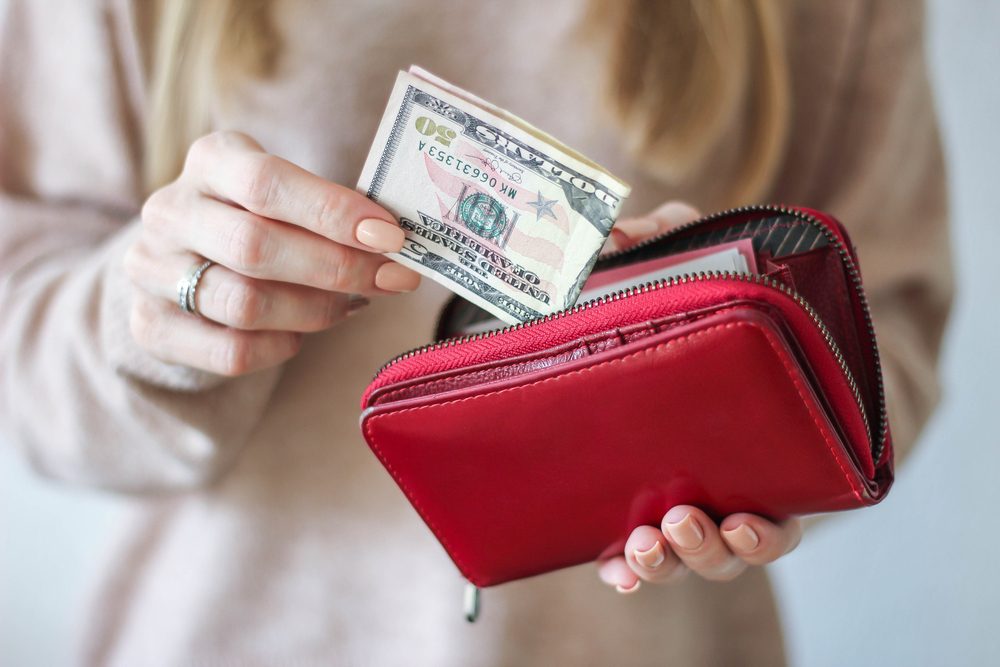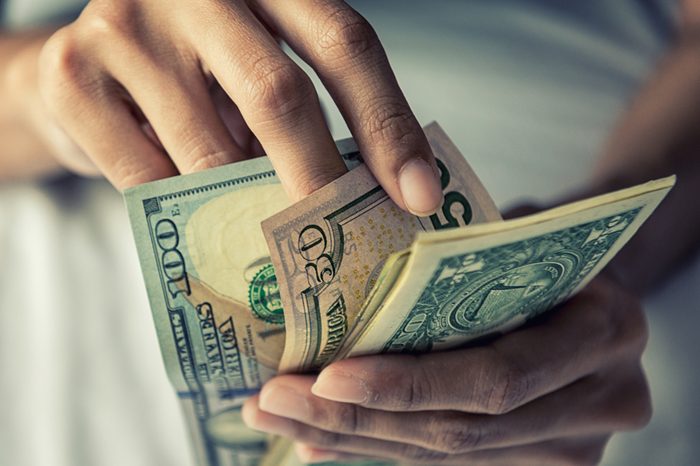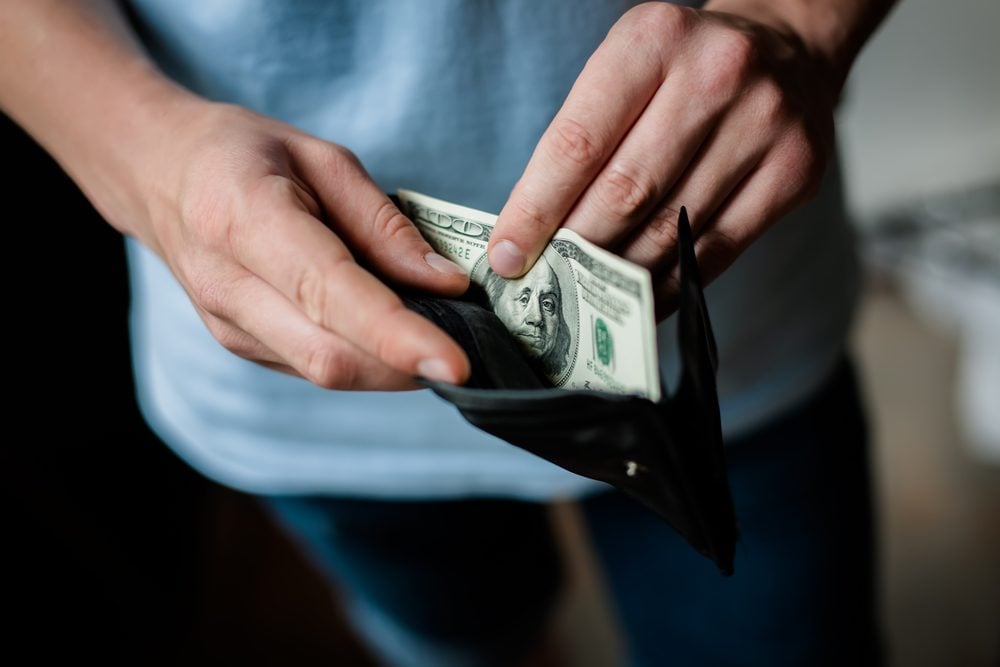
You’ll value your purchases more
Volunteers in a study published in the Journal of Consumer Research bought a coffee mug for $4.94 (marked as $2 off the original price) using either cash or credit. Two hours later, the researchers told them to pick a price to sell back the mug. Those who’d used cash asked for almost $3 more than those who’d paid with credit. “You feel something when you physically part with your money, and there are different levels of pain depending on the type of payment,” study author and University of Toronto assistant professor of marketing Avni Shah has said. Watch out, though—there are some times when it’s actually better not to pay with cash.

Your purchases will feel more meaningful
In a follow-up, the same University of Toronto researchers gave people either cash or a voucher to donate to a charity of their choice, to find out if the reasons people valued the mugs more because of the effort and fees related to finding an ATM. Turns out the first study’s findings held true: those who’d donated cash felt more connected to their chosen charities and less connected to the ones they hadn’t picked. Cash might help you make more thoughtful, meaningful shopping decisions, Shah says. Get more spending money with the highest-paying jobs in each state.

You’ll buy less junk food
Shoppers who pay with plastic buy a larger proportion of unhealthy, impulsive foods than those who pay with cash, according to a study in the Journal of Consumer Research that followed households over six months. The authors conclude that paying with cash could boost feelings of self-control because it’s more painful to hand over cash than to swipe a card. Check out some more tricks from people who are really good at saving money.

Your kids will eat less too
Trickle down your junk food resistance to your kids by giving them cash for the cafeteria. Students at schools that only accepted payment from pre-filled accounts ate about 752 calories at lunch (441 of which were from non-healthy foods like cheeseburgers and dessert), compared with the 721 calories (378 being unhealthy) eaten by kids whose schools also accepted cash, according to a study in the journal Obesity. The study authors say prepaid accounts give parents less control over what their kids buy, and because they’re not sure how long the money should last, children are inclined to spend more.

You’ll save money
When asked how much they’d pay for a meal in various payment forms, participants were willing to spend more when paying with credit card than with cash, according to a 2008 study in the Journal of Experimental Psychology: Applied. Another experiment in the report found that volunteers who were given a $50 gift certificate paid more per item at a grocery store than those who received the same amount in cash. “Less transparent payment modes such as a credit card or gift card, which somewhat dull the pain of paying, are more likely to be associated with free spending,” the authors write. “A transparent mode such as cash is more likely to be associated with thriftiness and utilitarian consumption.” Use these psychological tricks to spend less while you shop.

You’ll spend less frivolously
In a study published in the Journal of Behavioral Decision Making, participants were given either a $5 gift card or the same amount in cash to spend at a shop the researchers set up. Those who paid with cash spent the money on more useful items, while those with gift certificates went for items meant for pleasure, not a practical need. Don’t be afraid to treat yourself, but be aware that the convenience of a credit card makes it easy to spend on things you don’t need. Learn the times you should never, ever pay with your credit card.

You’ll keep track of costs better
In one part of a four-experiment study in the Journal of Consumer Research, volunteers started by playing a word game that got them to think about either cash or credit cards. Next, they were shown the picture of a camera, along with its financial costs (like price and warranty charges) and features (like picture quality and zoom features). Those who’d been primed to think about cash remembered the prices better, while those who’d thought about the credit cards were more likely to think about the camera’s perks. Next, learn the money rules you should have memorized by the time you’re 40.